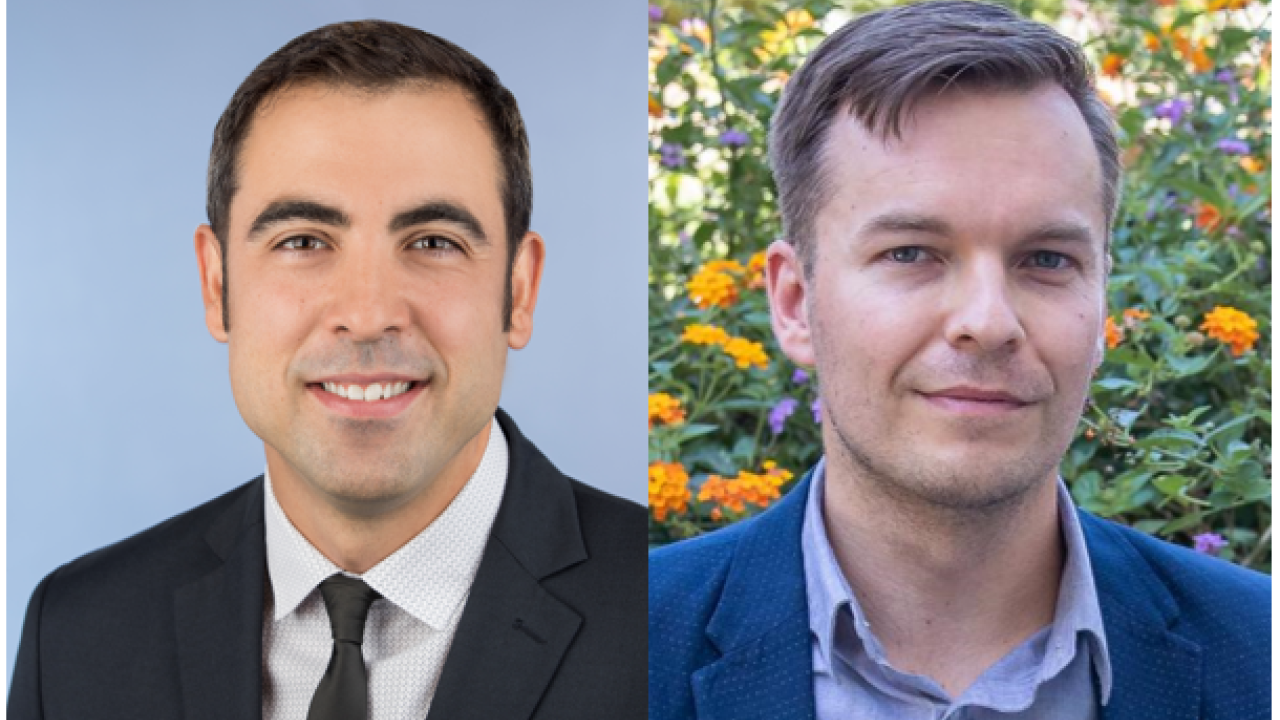
Event Date
Ignacio Saez, PhD: "Studying and Modulating Human Decision-Making With Invasive Recordings"
& Jonathon Schofield, PhD: "Using Neural Machine Interfaces to Embody Assistive Robotics"
Ignacio Saez, PhD, Assistant Professor, Department of Neurological Surgery, School of Medicine, UC Davis
Abstract - Ignacio Saez
My research focuses on the combination of electrophysiological data collection from neurosurgical patients with cognitive tasks. This experimental approach gives us access to fast, highly detailed, multi-areal neural activity from the human brain. The high signal-to-noise ratio of these recordings also make them highly suited to decoding methods to understand the relationship of distributed neural activity to aspects of cognition afflicted in brain disorders. I am particularly interested in the study of human decision-making through the use of decision tasks and computational models of reward and choice. In the current talk I will give a brief overview of ongoing research projects in the lab, and the latest techniques we have recently adopted, including human single unit recordings and neurostimulation.
Bio - Ignacio Saez
After completing my PhD in Neuroscience at Baylor college of medicine studying synaptic plasticity in the visual cortex using cellular neurophysiological methods, I became interested in the study of human value-based decision-making. During my postdoctoral training, first at Virginia tech in Dr. Read Montague’s lab and subsequently at UC Berkeley in Dr. Bob Knight’s lab, I worked to combine behavioral probes of decision-making with invasive recordings in patients. Specifically, I carried out electrophysiological and electrochemical recordings directly from the brain of patients undergoing neurosurgical treatment for Parkinson’s Disease and Epilepsy to understand the neural basis of choice with high anatomical and temporal precision. I joined the UC Davis Dept. of Neurological Surgery in Fall of 2018, where I work in close proximity with neurosurgeons and neurologist to carry out basic and translational research in a variety of patient populations.
& Jonathon Schofield, PhD, Assistant Professor, Department of Mechanical and Aerospace Engineering, College of Engineering, UC Davis
Abstract - Jonathon Schofield
Advancements in mechatronic technologies have ushered in an exciting era of upper-limb prostheses that rival the mobility of intact limbs. Yet, these devices still suffer from high abandonment rates. Here, a driving factor lies in the challenges users face in controlling the immense dexterity of these devices, especially as they do not actively provide feedback to the user during operation. These communication limitations leave users to pilot machines that are perceived as a disconnect tools rather than a truly integrated replacement limb. However, neural machine interfaces are unlocking encouraging possibilities to facilitate more effective human-machine communication. My research leverages a technique known as targeted reinnervation surgery to provide prosthetic control and sensation experienced by users as their missing limbs. Here, we can engage the users existing physiological circuitry that once serviced the intact limb. In this reestablished closed-loop control model, a prosthesis may begin to speak a common language with the user’s sensorimotor system, and we can guide users to assume body-ownership over their prosthesis and its actions, and dramatically improve the users abilities to control their device.
Bio - Jonathon Schofield
Dr. Schofield works to improve user acceptance and promote the seamless integration of humans and assistive medical devices. His work applies techniques in bio-robotic control and feedback, sensory-motor neural interfaces, and cognitive-perceptual neurosciences. The Schofield lab performs interdisciplinary research at the interface of mechanical and electrical engineering, neurosciences and rehabilitation medicine to address unmet clinical needs and understand how humans engage with intelligent technologies such as robotic prostheses. Dr. Jonathon Schofield completed a postdoctoral fellowship at the Laboratory for Bionic Integration in Cleveland Clinic’s Lerner Research Institute. He completed his PhD in Biomedical-Mechanical Engineering and an MSc. in Biomedical-Structural Engineering both at The University of Alberta in Canada.
Please register at: https://tinyurl.com/Neuroeng-Med-Jan
